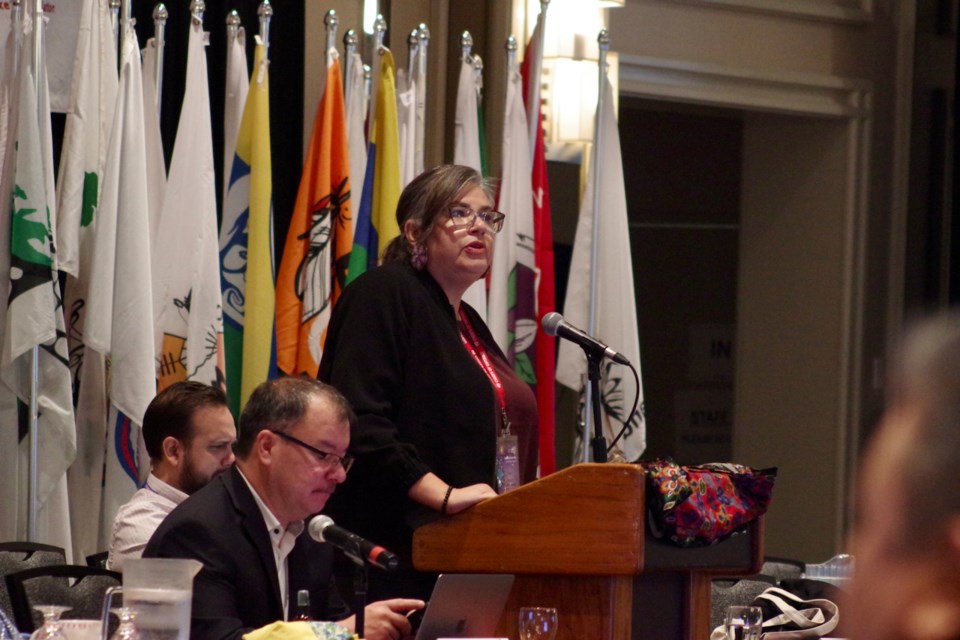THUNDER BAY — First Nations 2SLGBTQQIA+ people across the province will now have a formal seat at the table with the Chiefs of Ontario.
The Ontario chiefs passed a resolution calling for the establishment of a 2SLGBTQQIA+ council during their fall chiefs assembly, held Nov. 19–21 at the Valhalla Hotel and Conference Centre in Thunder Bay.
“You chiefs are leading by example by allowing the two-spirit (2SLGBTQQIA+) council to join the Ontario region, and by bringing in more voices from the (political territorial organization) level, from your communities, to be here and share and lead with us,” said Kieran Davis, co-chair at the Ontario First Nations young peoples council, on the first day of the assembly. “So I want to say thank you for all of you who passed that and thank you for supporting us and being there.”
The resolution for the establishment of a 2SLGBTQQIA+ council as a Recognized Principal Entity within the Chief of Ontario Charter was moved by Temagami Chief Shelly Moore-Frappier and seconded by Beausoleil proxy Marla Monague on Nov. 19.
Moore-Frappier says the resolution calling for a 2SLGBTQQIA+ Council was “very important because representation matters.”
“The voices of everyone needs to be at the table and that’s really about good governance and about addressing needs of all of our citizens,” Moore-Frappier says. “It’s a voice that’s been missing and I think it’s long overdue.”
The Assembly of First Nations and Grand Council Treaty #3 already have 2SLGBTQQIA+ councils.
Grand Council Treaty #3 Oichidaa Francis Kavanaugh says the resolution was “a very significant move.”
“We all want to be inclusive and we need to involve everyone else,” Kavanaugh said, noting that back in 2018 he asked the 2SLGBTQQIA+ community if they wanted to join the Grand Council Treaty #3 governance structure.
“We canvased all across Canada to see if anyone else had done that, so we didn’t have to reinvent the wheel, but as we found out, nobody had that within their governance structures," said Kavanaugh. "So we were the first in Treaty #3 to do that and now I’m very happy that a lot of our organizations and our brothers and sisters across Canada are doing the same thing. The other thing we are currently looking at is including a council for the disabled.”
Nishnawbe Aski Nation Deputy Grand Chief Anna Betty Achneepineskum also stressed the importance of the resolution calling for a 2SLGBTQQIA+ council, noting that gender diverse people across the country “face a lot of discrimination.”
“And they also get targeted for violence,” Achneepineskum says. “It’s so important that they be a part of decision making and providing input and also having a voice at the table to be able to develop safety processes within policing, justice and within society.”
Fort William First Nation chief Michele Solomon says the resolution calling for a 2SLGBTQQIA+ council is important because of the need to be inclusive.
“It’s really where we should be going,” Solomon says. “We need to be inclusive and it’s unfortunate that we have to take all these measures to be inclusive when we should have been all along, but it’s really great that we are moving in that direction now and making sure that there are safe spaces for two-spirit people and acknowledging their rights as well.”
